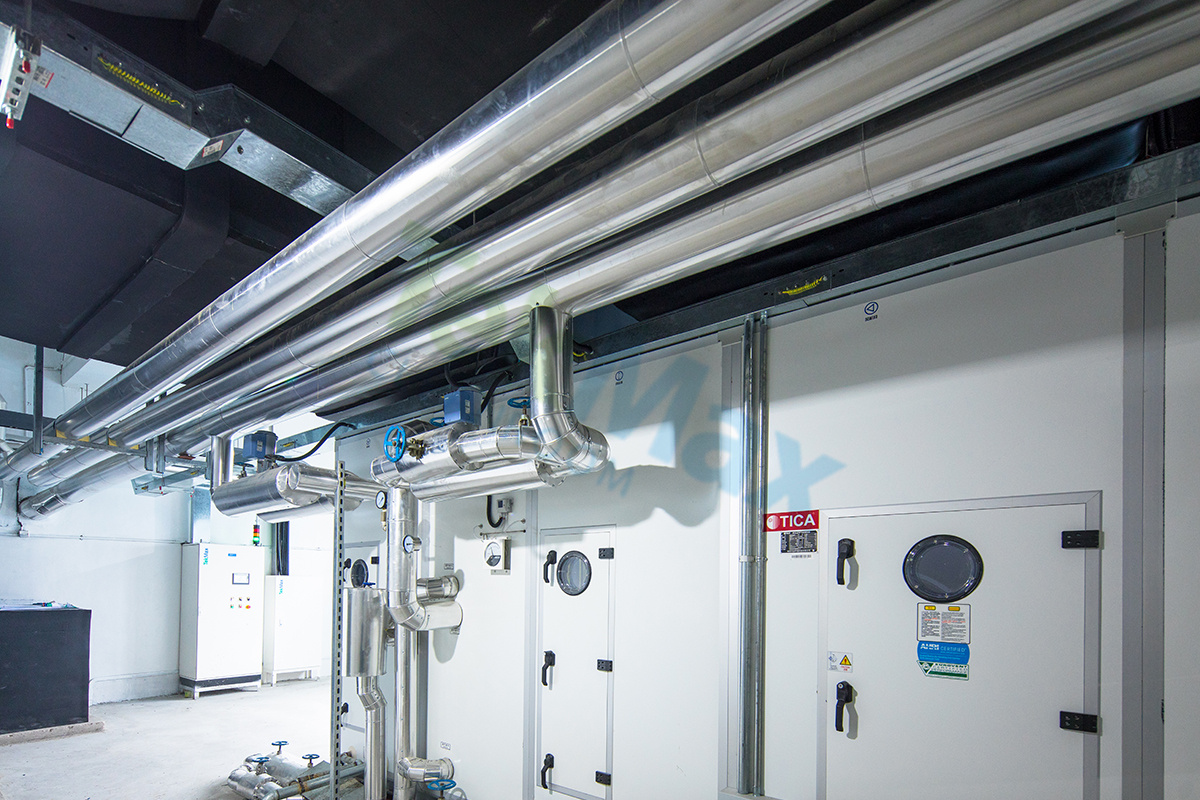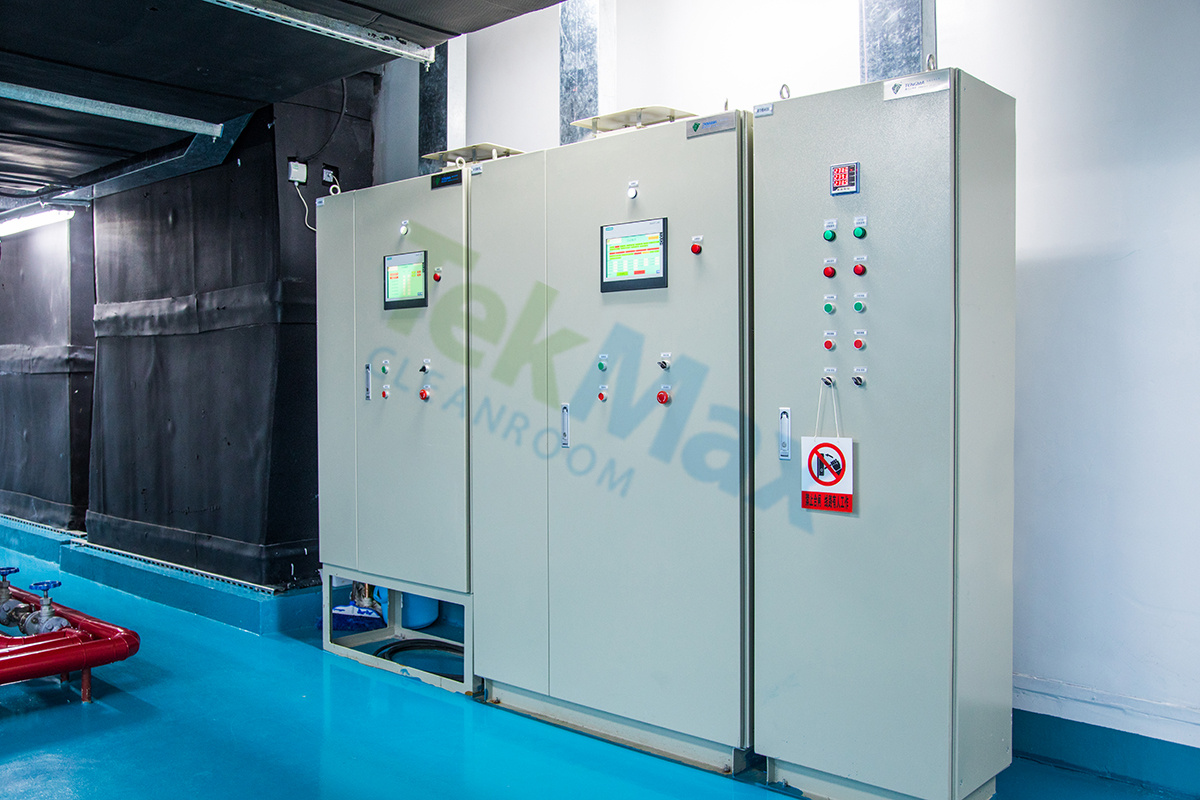Manufacturer of Exhaust Hood With Fresh Air - Air handling unit(AHU) – TekMax
Manufacturer of Exhaust Hood With Fresh Air - Air handling unit(AHU) – TekMax Detail:
Air handling unit (AHU): The air handling unit (AHU) is a centralized air handling system, which originated from the centralized installation of equipment and a forced hot air heating and ventilation system that distributes heated air through ducts. The basic centralized system is an all-air single-zone system, which generally includes components such as fans, heaters, coolers, and filters. The AHU mentioned here refers to the primary return air system. Its basic working process is: after the fresh air from outside is mixed with part of the indoor return air, the dust, smoke, black smoke and organic particles in the air are filtered out by the filter. harmful materials.
The clean air is sent to the cooler or heater through the fan for cooling or heating, so as to make people feel comfortable and suitable, and then sent into the room. The air conditioning process varies according to the winter and summer seasons, and the conditioning process of a typical centralized air treatment system is also different.
Equipment used to adjust indoor air temperature, humidity and cleanliness. There are air heaters, air coolers, air humidifiers to meet the requirements of heat and humidity treatment, air filters for purifying air, mixing boxes for adjusting fresh air and return air, and mufflers for reducing ventilator noise. The air handling units are equipped with ventilators. According to the requirements of air conditioning throughout the year, the unit can be equipped with an automatic adjustment system connected to the cold and heat sources.
The fresh air unit mainly deals with the state points of the outdoor fresh air, while the air handling unit mainly deals with the state of the indoor circulating air. Compared with fan coil plus fresh air system and unitary air conditioner, it has the advantages of large air volume, high air quality, energy saving, etc. It is especially suitable for large space and adult flow systems such as shopping malls, exhibition halls, and airports.
A good air handling unit should have the characteristics of less space, multiple functions, low noise, low energy consumption, beautiful appearance, and convenient installation and maintenance. However, due to its multiple functional segments and complex structure, it is necessary to take care of the other without losing the other, and it requires the designer and the construction unit to compare materials, manufacturing processes, structural characteristics, and type selection calculations in order to obtain a better comparison. Satisfactory results.
Product detail pictures:

Related Product Guide:
Our purpose would be to offer good quality products at competitive price ranges, and top-notch support to clients around the whole world. We're ISO9001, CE, and GS certified and strictly adhere to their good quality specifications for Manufacturer of Exhaust Hood With Fresh Air - Air handling unit(AHU) – TekMax , The product will supply to all over the world, such as: Algeria, United Arab emirates, Portugal, With the principle of win-win, we hope to help you make more profits in the market. An opportunity is not to be caught, but to be created. Any trading companies or distributors from any countries are welcomed.
The customer service staff's answer is very meticulous, the most important is that the product quality is very good, and packaged carefully, shipped quickly!





